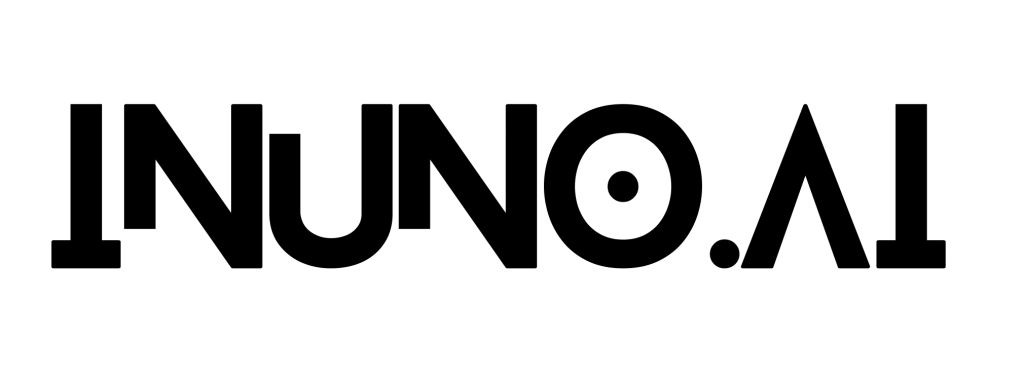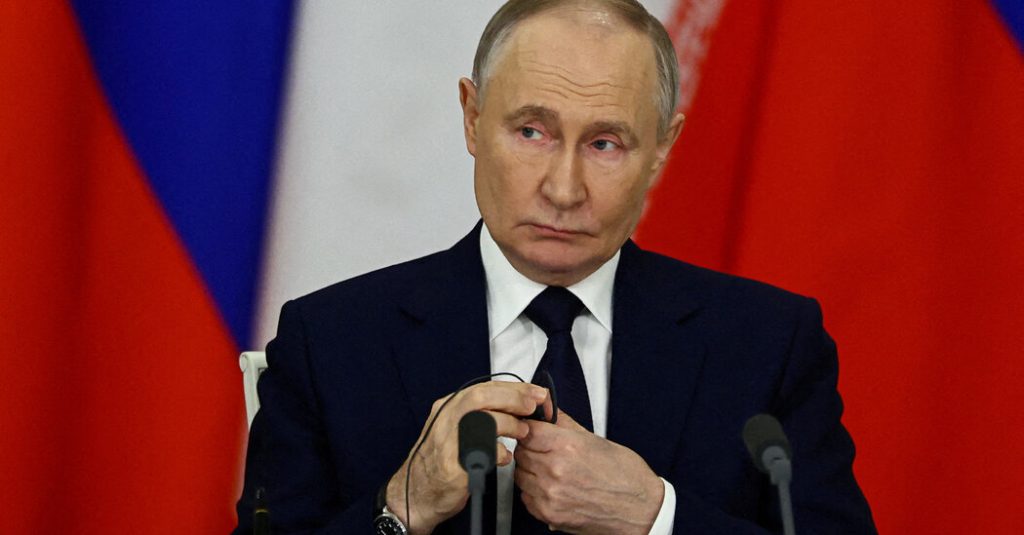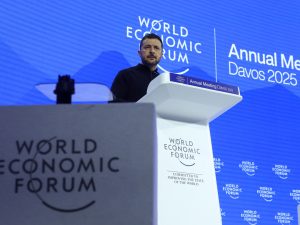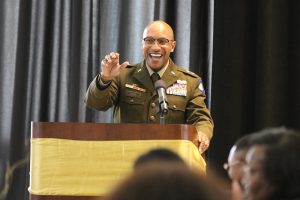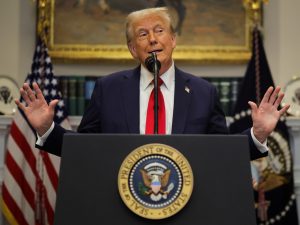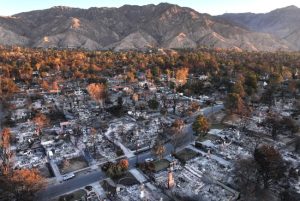President Vladimir V. Putin of Russia heralded President Trump’s second inauguration with glowing praise, saying Mr. Trump showed “courage” in his campaign and won a “convincing victory” in the election.
But hours later on Monday, in the Oval Office, Mr. Trump didn’t return the favor. The American president made some of the most critical comments he’s ever made about Mr. Putin, declaring that the Russian leader is “destroying Russia” by waging war in Ukraine.
“He can’t be thrilled, he’s not doing so well,” Mr. Trump told reporters Monday evening, referring to Mr. Putin’s war. “Russia is bigger, they have more soldiers to lose, but that’s no way to run a country.”
The whiplash underscored why celebrations of Mr. Trump’s return to the White House have been muted in Russia in recent months: Russian officials know that Mr. Trump is unpredictable. Indeed, Mr. Trump has often spoken warmly about Mr. Putin, and in 2018 accepted the Russian leader’s word over his own intelligence agencies at a summit in Helsinki.
Still, the situation remains fluid, and Mr. Trump said Monday that he may speak to Mr. Putin “very soon.” On Tuesday, Mr. Putin’s foreign policy adviser, Yuri Ushakov, told reporters that Russia was “taking into account” Mr. Trump’s Oval Office comments but was still waiting for his aides to reach out about potential talks.
“We are ready and open for dialogue with the new U.S. administration on the Ukraine conflict,” Mr. Ushakov said. “If the relevant signals come in from Washington, then we’ll pick them up and will be ready to hold negotiations.”
Mr. Trump had promised to end the war before he even took office, but asked Monday how long it would take to stop the fighting, he said: “I have to speak to President Putin. We’re going to have to find out.”
Mr. Putin has made no secret of his eagerness to talk to Mr. Trump. On Monday, Mr. Putin said he welcomed the U.S. president’s readiness to “restore direct contacts with Russia.”
But Mr. Putin is hedging his bets by firming up his existing alliances. Last Friday, Mr. Putin welcomed Iran’s president, Masoud Pezeshkian, to the Kremlin as the two signed a treaty pledging to increase their cooperation on military and economic matters. And on Tuesday, Mr. Putin held a video call with Xi Jinping, China’s leader, greeting him as his “dear friend.”
In Ukraine, Russian forces are pushing ahead in the country’s east, but at the cost of what Western officials say are more than 1,000 dead and wounded soldiers a day. In a freewheeling exchange with reporters Monday as he signed executive orders in the Oval Office, Mr. Trump referred to Russia’s losses as leverage for a potential deal to end the war.
“He’s grinding it out, but most people thought that war would have been over in about one week,” Mr. Trump said. “I think he’d be very well off to end that war.”
Mr. Trump said last week that he would meet with Mr. Putin “very quickly” after his inauguration, and the Russian president has said he’d be ready to meet with Mr. Trump. Such a meeting would be a major milestone for Mr. Putin even without a settlement in Ukraine, marking a break after three years of near-total isolation imposed by Western leaders.
Ahead of any potential talks, Mr. Putin is signaling that he’ll be a tough negotiator and that he is convinced that he has the resources to outlast Ukraine and the West, despite economic sanctions that have put severe strain on Russia’s economy. He reiterated his public stance on Monday that he wants a “long-term peace” rather than a “brief cease-fire,” and that he’ll “fight for Russia’s interests.”
The Kremlin has defined those interests as a guarantee that Ukraine will never join NATO and other limits to the West’s role in Eastern Europe.
